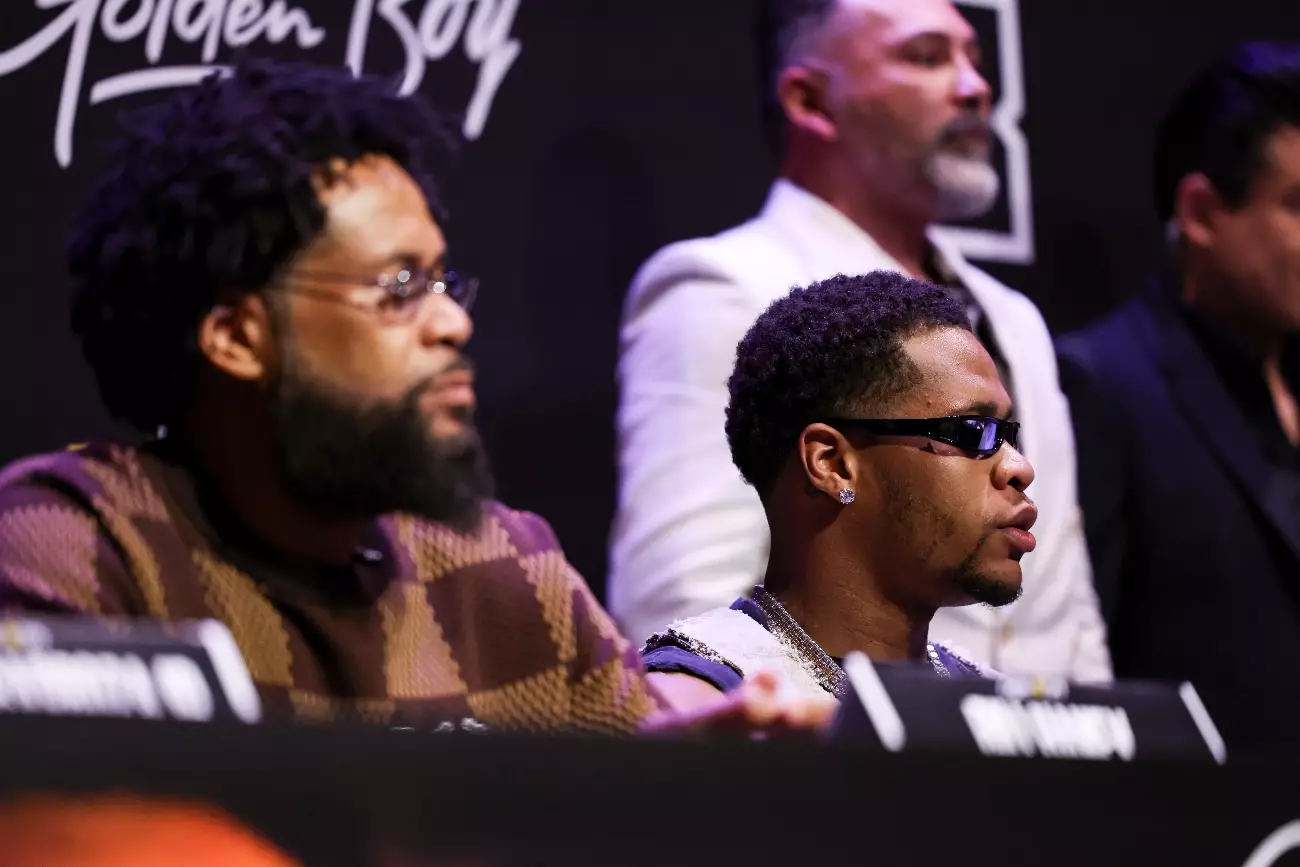In the high-octane world of professional boxing, rivalries and disputes are as prevalent as the matches themselves. Recently, a heated exchange between promoter Eddie Hearn and former champion Devin Haney sent shockwaves through the boxing community. The clash not only highlighted the intense emotions surrounding the sport but also exposed the complexities of relationships within the boxing industry.
At the center of the disagreement was Haney’s late request for ringside tickets to the highly anticipated Anthony Joshua vs. Daniel Dubois event, held in Riyadh. The timing of the request, just a few hours before the event, caught Hearn off guard. The promoter’s response to Haney’s demands was not one of instant gratification but rather a reminder of the protocol and arrangements that had already been put in place. Hearn shared details of this incident with Boxing News, revealing that he was inundated with requests and obligations, leaving little room for last-minute adjustments.
Hearn’s retelling of the events illustrates a fundamental issue in their communication. Instead of directly engaging Hearn via a phone call or text during a more reasonable time, Haney resorted to social media to express frustration, which only aggravated the situation. This act of airing grievances online speaks volumes about modern-day professional communication but also raises questions about professionalism and maturity in the boxing fraternity.
The tension was exacerbated by a significant backdrop: Devin Haney’s recent loss to Ryan Garcia, a defeat that has left his career hanging in uncertainty. This situation begs the question of whether Haney’s expectations for VIP treatment stem from past successes or if he has indeed misjudged his current standing within the sport. Despite being a former two-division champion, losing in such a public manner can drastically shift one’s perceived value in the boxing landscape.
Moreover, Hearn’s irritation towards Haney’s perceived entitlement further complicates their relationship. In the world of boxing, a promoter’s allegiance often sways with the fighter’s success. Hearn, who once championed Haney, no longer has a vested interest in his career and thus, arguably, owes him little. This dynamic raises an important point: fighters must navigate their careers with an understanding that promotions and relationships are transactional, often predicated on current performance and marketability.
The public nature of their disagreement, fueled by social media, adds yet another layer to the situation. The immediacy with which statements can be broadcasted to the world can sometimes muddy the waters of personal relationships. Haney’s choice to vocalize his grievances on Twitter, rather than addressing Hearn directly, reflects a growing trend among athletes who utilize digital platforms to influence public perception.
However, this tactic can backfire dramatically, as evidenced by Hearn’s retort during their confrontation. The promoter bluntly called out Haney for behaving immaturely and for leveraging social media to stage complaints instead of addressing matters privately—a move that can tarnish reputations and perpetuate negative narratives. Such exchanges underline the necessity for professional athletes to consider the implications of their online presence and the weight of their words.
As the dust settles on this public spat, the future of Haney’s relationship with Hearn seems more tenuous than ever. Professional relationships in boxing can suffer irreparable damage from outbursts like this—especially when one party feels slighted or disrespected. Hearn’s recounting of their confrontation showed a mix of disappointment and frustration, suggesting that maintaining a cordial relationship may be a challenge moving forward.
In reflecting on this incident, it is crucial for both fighters and promoters to foster open lines of communication that embrace respect and understanding. The world of boxing can be brutal, and ensuring that dialogues remain professional is vital for the integrity and longevity of a career. As for Haney, he will need to reassess his public persona and public relationships in light of recent events and formulate a path forward that acknowledges both his talent and the current realities of his standing in the boxing community.
The confrontation between Hearn and Haney exemplifies the nuances of personal relationships in a fiercely competitive industry like boxing. The exchange serves as a cautionary tale for both fighters and promoters in handling grievances, emphasizing the importance of direct communication over chorusing public complaints—a lesson that transcends the ring and speaks to the heart of professional integrity.

